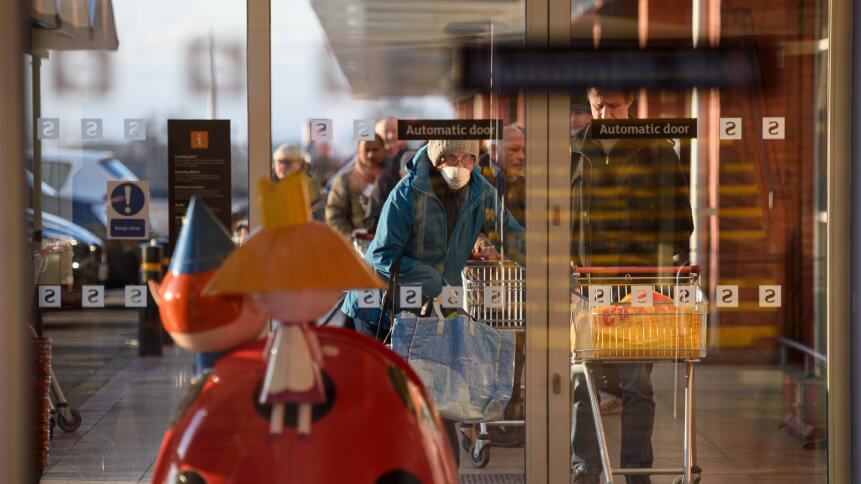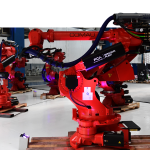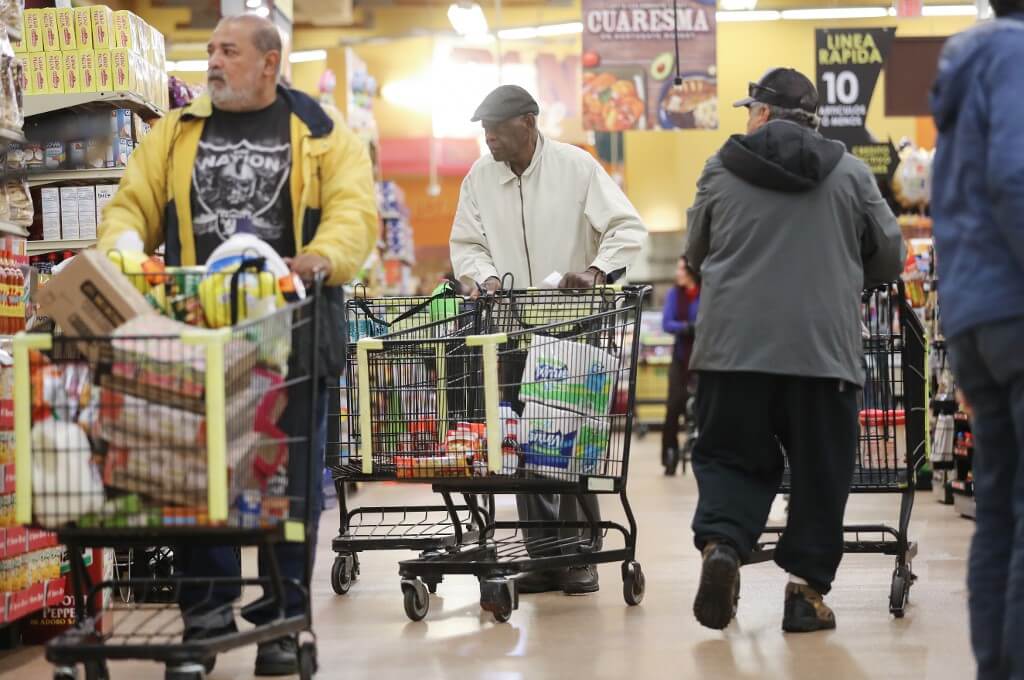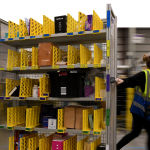Grocery retailers have risen to the challenge

Grocery retailers have failed during the coronavirus outbreak. They should have turned to Monte Carlo simulation to predict the panic buying and empty shelves that are currently making headlines.
That’s the view of Brittain Ladd, a supply chain consultant whose CV includes stints at Amazon, Deloitte and Capgemini.
“Prior to the coronavirus, the world has experienced SARS, MRSA, flu and natural disasters from tsunamis to earthquakes. In every case, established consumer behavior changed significantly including panic buying and hoarding,” Ladd said in a LinkedIn post.
“Before the coronavirus appeared in the US, it had spread from China to other countries and again, consumer behaviour changed significantly to include panic buying and hoarding. How is it possible that Walmart, Kroger, Albertson’s and especially Amazon, all failed to predict what is occurring today regarding panic buying?” he added.
Grocery retailers must apply the science of supply chain management more rigorously, especially advanced statistical and stochastic modelling. Monte Carlo simulation would have predicted the panic buying and empty shelves, Ladd concluded.
In defence of grocery retailers
It’s true that grocery retailers have been struggling. We’ve all seen pictures on social media of empty supermarket shelves and heard stories of supply chain and website issues.
US online grocer FreshDirect has, for instance, emailed customers, informing them that a warehouse worker has tested positive for COVID-19.
In the UK, meanwhile, Ocado suspended its online food delivery service, blaming higher demand than it could meet. Whether or not Monte Carlo simulation would solve such problems is debatable. There’s always someone out there with a magic bullet, right?
As retail consultant and former Tesco Project and Programme Manager Ollie Banks says: “The sheer volumes of grocery right now is just staggering. I know that it’s not easy for anyone throughout the whole supply chain and store ops. Keep going! I salute you!”
YOU MIGHT LIKE

Could COVID-19 spur the rise of Robotics-as-a-Service?
Furthermore, rather than blaming retailers, it could be argued that shoppers (or more specifically the ones bulk buying toilet roll, soap, eggs, etc) are the ones letting society down.
FreshDirect commented that it was struggling to keep up with consumer demand. “Although demand is causing delivery time slots to fill up faster than usual, we will continue to expand our capacity to meet our community’s needs,” it said.
And it called on customers to do their bit and “only buy what you need so we can serve as many people as possible.”

Seniors shop for groceries during special hours open to seniors and the disabled in LA. Source: AFP
Solutions to problems
We’ve seen many tech-savvy retailers step up to the challenge in these incredibly tough times. Starbucks, for instance, has put in place a temporary “to go” model for all of its locations in the US and Canada.
This sees the retailer closing down seating in its cafe and patio areas. Starbucks will instead rely on its app for ordering ahead, drive thru in certain locations, walk up counter and delivery.
In the UK, Dunelm’s Click and Collect service now has a deliver-to-car option.
“Placing an order online will be the same, all you need to do is call your local store once you’ve arrived outside and they will bring your order to you,” CEO Nick Wilkinson said in an email to customers.
Dunelm is also introducing a contactless delivery service. “There’s no need to sign for your order and no hand to hand passing of packages. If you’re at home and healthy, we can still bring your furniture items to the appropriate room,” Wilkinson added.
Final word to retail tech veteran Alan Morris: “A very experienced retailer once told me that even when the waters are rough, the land is not in site, and everyone around is worried, it’s important for the Captain to maintain a steady hand on the tiller. You just need to learn how to balance a wine glass in the other hand.”
Here’s to the unsung retail heroes (both front and back of house) who are doing amazing jobs for their countries.








